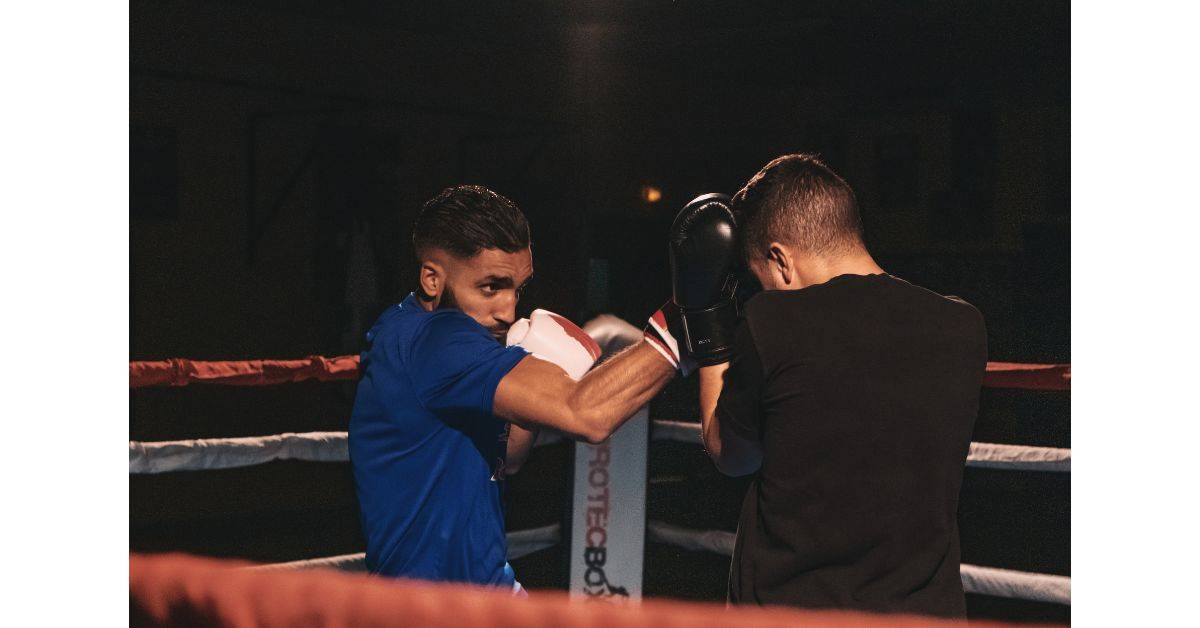Some people may not be as eager to start their boxing journey, as they’re afraid of becoming dumber. While there’s a correlation between contact sports, brain damage, and a decrease in intelligence, that’s not as simple as it sounds. Let’s see what the real answer is.
Boxing will not make you dumb, but it can cause severe brain or head damage. That, as you can imagine, cause symptoms such as speech impairment and forgetfulness. Likewise, if you’re a novice boxer that spars or competes against better boxers, you’re more likely to get hit in the head, and thus get brain damage.
I wouldn’t necessarily say that you’ll become dumb if you start boxing. If you just box as a hobby, getting brain damage is extremely unlikely. Nevertheless, if you start competing or sparring very often, your chances of “becoming dumber”—rise.
Various studies have examined the correlation between boxing and chronic brain damage. There is, in fact, strong evidence pointing to the direction most of us prefer not to know. However, familiarizing yourself with this link—is vital for keeping your head healthy in both the short and long-term.
This article will review some of these studies and give a clear and concise answer to many of your questions. I’ve seen a wide gap in the boxing community regarding this topic; I believe closing it—is crucial for informing more people about this important topic.
Before we dive in, however, if you want to read about how to keep your hands healthy in the sport of boxing, follow the link to read the complete guide on how to protect your hands.
Does boxing affect intelligence?
The first topic we’ll discuss is intelligence. If you’re an individual who wants to keep his IQ complete, you might be hesitant to start boxing. Honestly, I can understand you. The number of stories of people who got brain damage from their career—is astounding.
Boxing can influence intelligence by causing brain trauma. In fact, 20% of professional boxers will have long-term chronic traumatic brain injury (CTBI). This can be an alarming statistic for those wanting to keep their IQ as it is. This, however, shouldn’t be a concern for the average boxer.

The primary risk comes when you constantly involve yourself in sparring or competitions. If you fight every single night, you’re more likely to get brain trauma, as you receive more strikes to the head.
If, on the other hand, you keep boxing entirely as a hobby and don’t spar regularly, you’re in the clear. And still, getting concussions—is possible, even if you’re only sparring infrequently. If you want to learn more about concussions and how you can prevent them, follow the link.
While I love the competition aspect of boxing and other martial arts, I’m also a big fan of keeping your health in the long-term. Risking your future health for current enjoyment—is unwise, even if boxing improves you and allows you to become better.
The negative effects of boxing
Boxing can have some negative effects. However, you can use it, if you wish, to boost your self-improvement journey. It can better your mental and physical selves, such as increasing your confidence, self-esteem, and better your endurance.
Boxing can have various negative effects, all deriving from potential injuries, primarily face, hand, and brain ones. For instance, 20% of boxers will experience CTBI. However, most injuries will be face lacerations. And, of course, you will find various hand, wrist, and knuckle injuries in a sport about punching.
The most severe and common negative effect from boxing is the punch-drunk syndrome. Depending on how many hits you get to the face, you can be experiencing this syndrome, potentially leading to memory loss, speech impairment, and other head-injuries symptoms.

However, if you watch yourself in sparring and don’t typically compete, you’re unlikely to find yourself with any type of brain damage. So, you can remain calm if you want to box because of self-improvement or learning self-defense.
Watch this video to understand why professional boxers suffer from brain damage. Try to grasp the huge impact they feel over the course of their career. Really, think about it. Of course, you don’t have to put yourself in the same position as them. You can take it as a hobby, like myself and most people who do boxing.
I know it can be scary to start boxing for all its potential negative effects; but, I can honestly say that this sport has improved the lives of millions. Mostly, it bettered the lives of the people who dedicated themselves to this sport and to their self-improvement journey.
If you want to learn about a fantastic alternative to typical boxing training, here are the 10 reasons why you should shadowbox. If you want to learn this beautiful art while ensuring your long-term safety, do consider following the link.
Will boxing cause brain damage?
The number of boxers that suffer some type of brain damage—can be alarming. Some folks may even go as far as not starting their fighting journey because of it. I can understand why you may take precaution before starting your journey. Let’s see whether the sport of punching will cause head damage.
Boxing may cause brain damage, depending on numerous factors: the primary one is how many times you get hit in the face and in what force. If you spar or compete regularly, you’re more likely to get hit in the face often. As a result, you’ll also be more likely to suffer from some type of brain damage.
Chronic traumatic brain injury (CTBI) associated with boxing occurs in approximately 20% of professional boxers. So, 1 out of 5 pro boxers—will suffer from such injury. I understand that such numbers can be highly alarming.
According to a recent study, “there is a strong evidence that professional boxing results in chronic brain damage. The more head punches during a boxer’s career, the bigger is the risk”.
Concluding, the more hits you receive to the face, the more likely you are to experience chronic brain damage. If you want to minimize the risk, you ought not to spar as typically.
Does boxing make you forgetful?
Consistent boxing can make you forgetful, as the impact from the punches you’ll receive to the head, will, over time, add up. Eventually, such a large amount of impact—can and will cause some type of impairment, such as in the memory. Boxing can make you forgetful if you spar or compete regularly.
CTE has been found in the brains of people who played football and other contact sports, including boxing. It may also occur in military personnel who were exposed to explosive blasts. Some signs and symptoms of CTE are thought to include difficulties with thinking (cognition) and emotions, physical problems and other behaviors.
SOURCE
According to this source, contact sports, such as boxing, can cause various difficulties with thinking. Eventually, this can impact memory function, especially in more severe cases.
Final words
Boxing is one of the most dangerous sports. Its injury rate is one of the highest amongst all contact sports, including football and rugby. The rate of injury can be alarming, for some. Some may even be scared of starting their fighting journey because they want to keep their health.
While I completely understand this argument, I want to emphasize that if you box as a habit, you’re unlikely to suffer from brain damage. Stay away from regular sparring and don’t compete as often. Of course, if becoming a professional boxer is your goal—you must face the possibility of you suffering some type of head or brain damage.
If you enjoyed reading this article, you’ll also enjoy reading about the best boxing headgear for sparring and training. If you want to ensure the long-term health of your brain while sparring or training, consider pairing yourself with head protective gear; do follow the link to see which are the best ones in the market.

